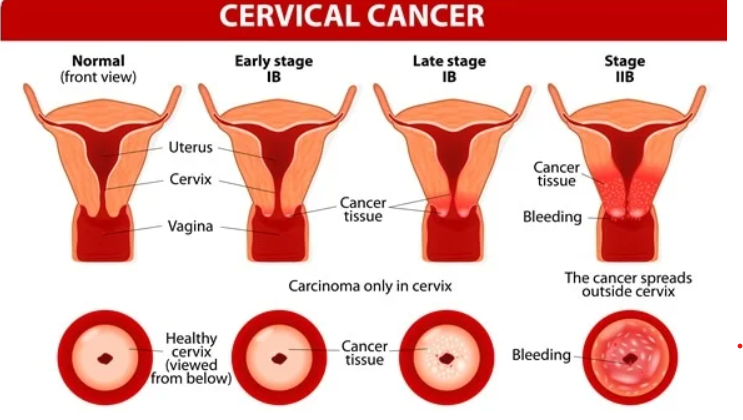Cervical cancer, while a prevalent and sometimes scary topic, shouldn't stop us from having open and informed conversations. This post aims to empower you with knowledge about cervical cancer, its prevention, and treatment options.
Understanding the Enemy:
Cervical cancer affects the cervix, the opening of
the uterus. The primary culprit is the Human Papillomavirus (HPV), a sexually
transmitted infection linked to most cervical cancer cases. However, not all
HPV infections lead to cancer, and our bodies often naturally clear the virus.
Prevention is Key:
The good news? Cervical cancer is highly
preventable, thanks to two powerful tools:
- HPV Vaccination: Starting at age 9, the HPV vaccine offers robust
protection against the strains responsible for most cervical cancers. Talk
to your doctor about getting vaccinated, even if you've already been
sexually active.
- Regular Screening: Pap smears and HPV tests, starting at age 21 (or
earlier if recommended by your doctor), detect precancerous changes that
can be treated before they progress to cancer. Early detection is crucial
for successful treatment.
Treatment Options:
If diagnosed with cervical cancer, remember, you're
not alone. Various treatment options are available, depending on the cancer
stage and other factors. These may include:
- Surgery: Removal of the cancerous tissue is often the first line of
defense.
- Radiation therapy: High-energy beams target cancer cells.
- Chemotherapy: Medications fight cancer cells throughout the body.
- Targeted therapy: Drugs focus on specific vulnerabilities in cancer
cells.
Remember:
- Early detection is critical for successful treatment. Don't
hesitate to get screened regularly.
- Open communication with your doctor is essential throughout the
diagnosis and treatment process.
- Support groups and resources are available to help you navigate
this journey.
Taking Charge:
By understanding cervical cancer, its prevention
methods, and treatment options, you can take control of your health. Get
vaccinated, prioritize regular screenings, and maintain open communication with
your doctor. Remember, knowledge is power – use it to protect yourself and
empower others.
Additional Resources:
- American Cancer Society: https://www.cancer.org/cancer/cervical-cancer.html: https://www.cancer.org/cancer/cervical-cancer.html
- National Cancer Institute: https://www.cancer.gov/types/cervical/patient/cervical-treatment-pdq: https://www.cancer.gov/types/cervical/patient/cervical-treatment-pdq
- Centers for Disease Control and Prevention: https://www.cdc.gov/cancer/cervical/basic_info/prevention.htm: https://www.cdc.gov/cancer/cervical/basic_info/prevention.htm
Disclaimer: This blog post is for informational
purposes only and should not be considered medical advice. Please consult with
your healthcare provider for any questions or concerns regarding cervical
cancer.









0 Comments